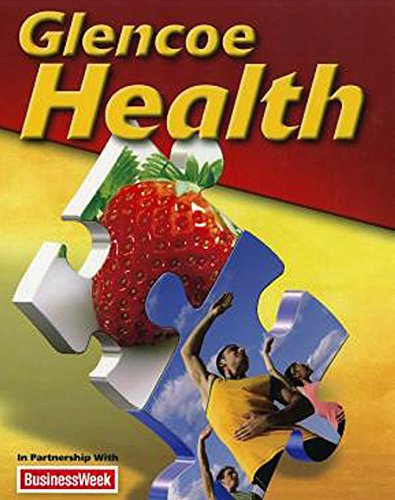
All Solutions
Section 22.3: Psychoactive Drugs
1. Stimulants — also known as “uppers”, substances that stimulates the central nervous system and causes euphoria
eg. Amphetamine, Cocaine, Methamphetamine
2. Depressants — also known as “downers”, substances that reduce the stimulation of the central nervous system
eg. Barbiturates, Benzodiazepines, GHB, Rohypnol, Tranquilizer
3. Opiates — substances that are naturally derived from opium which bind to the opioid receptors to alter the brain’s perception of pain.
eg. Codeine, Heroin, Morphine, Opium, Oxycodone
4. Hallucinogens — substances that alter the person’s perception of reality, thoughts, and emotion.
ed. Ecstasy, Ketamine, LSD, Mescaline, PCP, Psilocybin
1. Stimulants — Amphetamines, Cocaine, Methamphetamine
2. Depressants — Barbiturates, GHB, Rohypnol, Tranquilizers
3. Opiates — Codeine, Heroin, Morphine, Opium, Oxycodone
4. Hallucinogens — Ecstasy, Ketamine, LSD, Mescaline
Morphine is an opiate alkaloid extracted from a plant called Papaver somniferum (Opium poppy), making it a naturally derived drug. However, even though morphine is naturally derived, it is still not safe to take without the medical professionals’ supervision because its consumption is prone to developing drug dependence.
DESIGNER DRUGS
The designer drug, also called synthetic drugs or controlled substance analogue, is a synthetic drug analogue whose chemical structure has been altered in a clandestine laboratory in order to mimic the properties and effects of an existing psychoactive drug that originated from organic botanical compounds.
However, designer drugs pose grave dangers to a person’s physiological and psychological health because these new psychoactive drugs have more dangerous, unpredictable, powerful, and variable effects on the central nervous system and the body.
TYPES OF DESIGNER DRUGS
1. Synthetic Cannabinoid, also called synthetic marijuana, Spice, Kronic, K2, Bliss, and Scooby Snax, is a new psychoactive substance in liquid form or laced onto herbal products that are synthetically designed to mimic the effects of tetrahydrocannabinol (THC) in marijuana through binding to the cannabinoid receptors in the central nervous system. The misuse of synthetic cannabinoid may result in severe agitation and anxiety, increased heart rate and high blood pressure, intense hallucinations, psychotic episodes, and overdose death.
2. Synthetic Cathinone, also called bath salts, is a euphoric stimulant that can be found in tablet, capsule, or powder form which is a derivative of the psychoactive alkaloid cathinone found in the plant called Catha edulis (Khat). This new psychoactive substance has short-acting physiological and psychological effects similar to that of amphetamines. Synthetic cathinone may result in adverse health effects of increased blood pressure and heart rate, chest pain, nausea and vomiting, delusions, hallucinations, paranoia, suicidal tendencies, seizures, violent outburst, and overdose death.
3. Synthetic Phenethylamine, also called N-bomb and Smile, is a new psychoactive substance, in the form of powder, liquid solutions, laced on edible items, and soaked onto blotter paper, which alters the person’s perception causing hallucinations. The consumption of synthetic phenethylamine, even in small amounts, may result in cardiac and respiratory arrest, seizures, and death.
Friend: Hey, (your name)! Do you wanna have fun right now?
You: Of course, (your friend’s name)! Who wouldn’t wanna have fun! It’s our annual squad party! Why’d you ask anyway?
Friend: Well, do you wanna take a molly? This will get us wild!
You: Nope. I’m sorry, (your friend’s name). I wanna have fun, but I don’t plan on getting high and wasted.
Friend: Why don’t you try it? It will be the best decision you’ll be making today!
You: You know what, (your friend’s name), in my opinion, it wouldn’t be the best decision to take party drugs. Yes, you may experience euphoria, however, taking those drugs poses dangers to a person’s physiological and psychological well-being.
Being under the influence of illegal drugs would increase the person’s possibility to be involved in drug-related accidents and violent crimes. Drug misuse can weaken the immune system making the person vulnerable to several infections since there are possibilities that these drugs might contain foreign substances. And it also increases the risk for contracting infectious diseases, such as Hepatitis B and HIV.
Drug misuse can also result in various cardiovascular, central nervous system, and respiratory diseases, and mental health problems that would compromise the person’s health and life. Additionally, drug misuse could lead to a higher risk of having seizures and overdose death. Party drugs may give you happiness for a short period of time, but their health consequences are forever. And I hope that you wouldn’t try to take that molly. You’re my friend and I don’t want your life to be compromised because of drugs.
Friend: You’re right, (your name). I shouldn’t even try to take these. Thanks for your advice. I really appreciate it.
You: No worries, (your friend’s name). Come one! Let’s have fun with the others!

